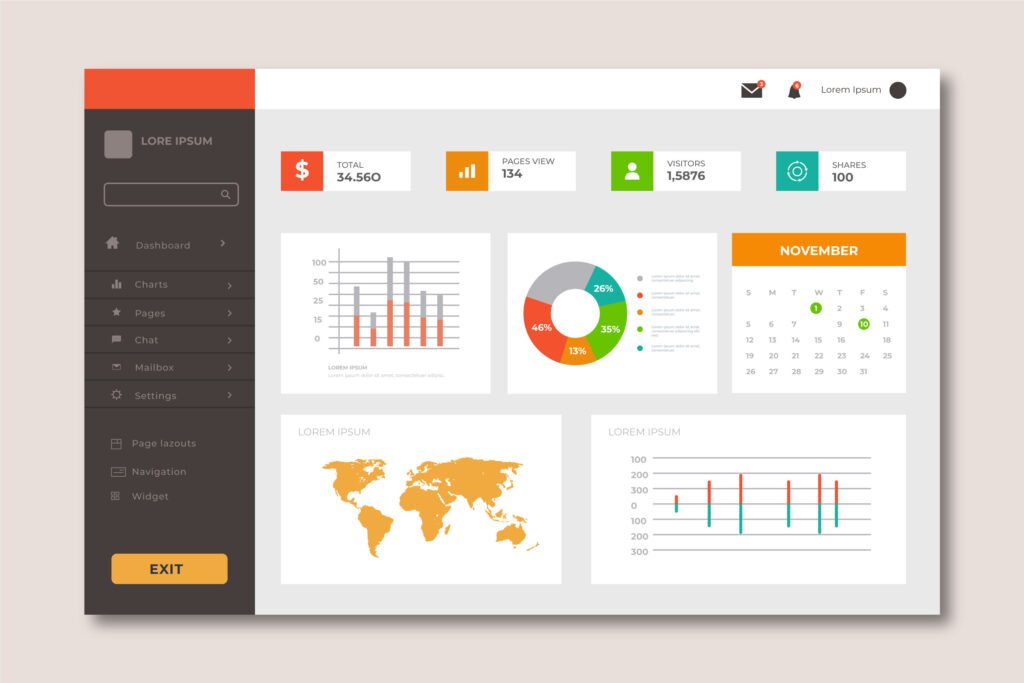Blockchain technology has been gaining popularity in recent years, with many believing it has the potential to disrupt multiple industries. While some see it as a revolutionary technology with endless possibilities, others remain skeptical about its future. In this article, we will explore the question “Does blockchain technology have a future?” and analyze the potential of this technology in the years to come.
Table of Contents
What is blockchain technology?
Firstly, let’s define what blockchain technology is. Essentially, a blockchain is a decentralized digital ledger that records transactions between parties in a secure and transparent manner. Each transaction is recorded as a block, which is then added to a chain of other blocks, hence the name “blockchain.” The data on a blockchain is stored across a network of computers, making it extremely difficult for any one individual to alter the information.

A brief history of blockchain technology
The first blockchain was created in 2008 by an anonymous person or group of people under the pseudonym “Satoshi Nakamoto.” The purpose of this invention was to create a decentralized currency that could operate independently of any government or financial institution. Since then, blockchain technology has evolved and expanded to other areas such as supply chain management, voting systems, and real estate.
Importance of the topic
Blockchain technology has the potential to revolutionize the way we conduct transactions and interact with one another. Its decentralized and transparent nature offers increased security, efficiency, and cost savings. However, there are still limitations and challenges facing the technology that need to be addressed before it can become mainstream. Understanding the potential of blockchain technology and its future implications is crucial for individuals and businesses alike.
The Current State of Blockchain Technology
The current blockchain market is still in its early stages, with a market capitalization of approximately $2 trillion as of May 2023. Major players in the blockchain industry include Bitcoin, Ethereum, Binance Coin, and Cardano. The impact of blockchain technology has already been felt in various industries such as finance, healthcare, and supply chain management. Many companies are exploring the use of blockchain technology to improve efficiency, security, and transparency in their operations.
Advantages of Blockchain Technology
Security and transparency
One of the most significant advantages of blockchain technology is its security and transparency. The decentralized nature of the technology makes it extremely difficult for any individual to alter or manipulate data. Each transaction is verified and recorded by multiple nodes across the network, making it virtually impossible to hack or alter. This increased security and transparency can help prevent fraud, reduce costs, and improve overall trust in transactions.
Decentralization
Another key advantage of blockchain technology is its decentralization. Transactions on a blockchain are processed by a network of nodes, rather than a central authority. This means that there is no need for intermediaries like banks or governments to oversee transactions, which can lead to faster and cheaper transactions.
Immutability
Once a transaction is recorded on a blockchain, it is virtually impossible to alter or delete it. This immutability ensures that the data on a blockchain is secure and tamper-proof.
Efficiency
The decentralized nature of blockchain technology can also lead to increased efficiency. Transactions can be processed faster and with fewer intermediaries, resulting in lower costs and faster processing times.
Cost reduction
The use of blockchain technology can also lead to significant cost savings. By removing intermediaries and increasing efficiency, businesses can reduce transaction costs and save money on administrative tasks.

Limitations of Blockchain Technology
Despite its many advantages, blockchain technology also has several limitations and challenges that need to be addressed before it can become mainstream.
Scalability
One of the biggest challenges facing blockchain technology is scalability. As the number of transactions on a blockchain increases, so does the time it takes to process them. This can result in slower transaction times and higher fees. Currently, the Bitcoin network can only process around 7 transactions per second, which is significantly slower than traditional payment systems like Visa, which can process up to 24,000 transactions per second. Ethereum, the second-largest cryptocurrency by market capitalization, can process around 15 transactions per second. This limitation has led to high transaction fees and slower processing times during periods of high demand.
Interoperability
Another challenge facing blockchain technology is interoperability. Currently, there are hundreds of different blockchain platforms, each with its own protocols and standards. This can make it difficult for different blockchains to communicate and work together. Interoperability is crucial for the growth and adoption of blockchain technology, as it allows different platforms to share data and resources.
Energy Consumption
The energy consumption required for mining cryptocurrencies and processing transactions is another major challenge facing blockchain technology. According to a report by the University of Cambridge, Bitcoin mining alone consumes more energy than the entire country of Argentina. The high energy consumption of blockchain technology has raised concerns about its environmental impact and sustainability.
Regulation
The lack of regulation and standardization in the blockchain industry is another challenge facing the technology. The decentralized nature of blockchain technology makes it difficult for governments and regulatory bodies to oversee and regulate transactions. This has led to concerns about money laundering, fraud, and other illegal activities.
Cost
Implementing blockchain technology can be expensive, and businesses need to carefully consider the costs involved in adopting the technology.
Future of Blockchain Technology
Despite its limitations and challenges, the future of blockchain technology looks promising. As technology continues to advance, many of the current limitations of blockchain technology may be addressed, making it more scalable, efficient, and environmentally friendly.
The use cases for blockchain technology are also expanding beyond just cryptocurrencies. Many industries, including finance, healthcare, and supply chain management, are exploring the use of blockchain technology to improve efficiency, security, and transparency in their operations.
Governments and regulatory bodies are also beginning to recognize the potential of blockchain technology and are exploring ways to regulate and oversee its use. This increased regulation and standardization could help reduce concerns about fraud and other illegal activities, while also increasing trust in the technology.
The Future of blockchain technology in Business
The future of blockchain technology in business is promising, as more companies are recognizing its potential to transform various industries. Here are some ways that blockchain technology is expected to impact business in the coming years:
Supply Chain Management
Blockchain technology can enhance supply chain transparency and traceability, making it easier to track products from origin to destination. This can reduce fraud, and counterfeiting, and improve quality control.
Decentralized Finance
Blockchain technology can enable new forms of decentralized finance, or “DeFi”, which offers financial services outside of traditional banking systems. This can include peer-to-peer lending, stablecoins, and other innovative financial instruments.
Digital Identity
Blockchain technology can help to create secure and decentralized digital identities, giving individuals more control over their personal data and reducing the risk of identity theft.
Asset Tokenization
Blockchain technology can enable the tokenization of real-world assets, such as real estate, artwork, and other assets. This can create new investment opportunities and increase liquidity in traditionally illiquid markets.
Smart Contracts
Blockchain technology can enable the automation of various legal processes, such as contract management and dispute resolution. This can increase efficiency and reduce costs for businesses.
Cross-Border Payments
Blockchain technology can enable faster and cheaper cross-border payments, reducing the need for intermediaries and increasing financial inclusion.
As blockchain technology continues to mature and become more widely adopted, it is expected to bring about significant changes to business models and operations. However, there are also challenges to be addressed, such as regulatory compliance, scalability, and interoperability. To stay competitive, businesses will need to invest in blockchain technology and explore its potential for innovation and growth.
How does blockchain technology help organizations when sharing data?
Blockchain technology can help organizations share data securely and transparently. Here are some ways that blockchain technology can facilitate data sharing:
Decentralization
Blockchain technology is decentralized, meaning that there is no central authority controlling the data. This can make it easier for organizations to share data without relying on a trusted third party, such as a data aggregator or cloud service provider.
Immutability
Once data is recorded on the blockchain, it cannot be altered or deleted. This makes the data more reliable and trustworthy, as it is protected from tampering and manipulation.
Security
Blockchain technology uses cryptography to secure the data, making it difficult for unauthorized users to access or modify the data. This can help to protect sensitive information and prevent data breaches.
Transparency
Blockchain technology is transparent, meaning that all participants in the network can see the same information. This can increase accountability and trust between organizations sharing data, as there is no ambiguity or confusion about who has access to the data.
Smart Contracts
Smart contracts can be used to automate data-sharing agreements, ensuring that data is shared in a secure and transparent manner. This can reduce the need for manual processes and increase efficiency.
Overall, blockchain technology can help organizations share data securely, transparently, and efficiently. It has the potential to revolutionize various industries by enabling new business models and creating new opportunities for innovation and growth. However, there are also challenges to be addressed, such as regulatory compliance and interoperability, which need to be addressed for widespread adoption.
Courses on blockchain technology
There are many courses available on blockchain technology, ranging from introductory courses to more advanced and specialized courses. Here are some examples of popular courses on blockchain technology:
Blockchain Basics
his is an introductory course that covers the fundamentals of blockchain technology, including its history, architecture, and applications. This course is suitable for beginners and does not require any prior knowledge of blockchain technology.
Ethereum Development Course
This course focuses on Ethereum, a popular blockchain platform that enables the development of decentralized applications (DApps). The course covers the basics of Ethereum development, including smart contract development and DApp development.
Blockchain for Business
This course focuses on the application of blockchain technology in business, covering topics such as supply chain management, digital identity, and smart contracts. This course is suitable for professionals who want to understand how blockchain technology can be used in their industry.
Blockchain Security
This course focuses on the security aspects of blockchain technology, covering topics such as cryptography, consensus mechanisms, and network security. This course is suitable for professionals who want to understand the security implications of using blockchain technology.
Blockchain Law and Regulation
This course covers the legal and regulatory aspects of blockchain technology, including intellectual property, data privacy, and compliance. This course is suitable for professionals who want to understand the legal and regulatory implications of using blockchain technology in their business.
These are just a few examples of the many courses available on blockchain technology. When choosing a course, it is important to consider your level of experience and your goals for learning about blockchain technology. It is also important to choose a reputable course provider that offers high-quality instruction and resources.
Click Here for online earn Money without any investment
FAQs
Is blockchain technology safe?
Yes, the decentralized nature of blockchain technology makes it extremely difficult for any individual to alter or manipulate data, making it more secure than traditional payment systems.
Can blockchain technology be used for things other than cryptocurrencies?
Yes, blockchain technology has many potential use cases beyond cryptocurrencies, including supply chain management, healthcare, and voting systems.
How does blockchain technology work?
Blockchain technology is a decentralized digital ledger that records transactions between parties in a secure and transparent manner. Each transaction is recorded as a block, which is then added to a chain of other blocks, hence the name “blockchain.”
Is blockchain technology environmentally friendly?
The energy consumption required for mining cryptocurrencies and processing transactions is a major challenge facing blockchain technology. However, as technology continues to advance, many of these environmental concerns may be addressed.
Will blockchain technology replace traditional payment systems?




Pingback: Understanding RSS Feeds: Do They Update Automatically? Hidden Thinker
Pingback: Why Do Most People Waste Their Time Unnecessarily Even Knowing Its Value? Hidden Thinker